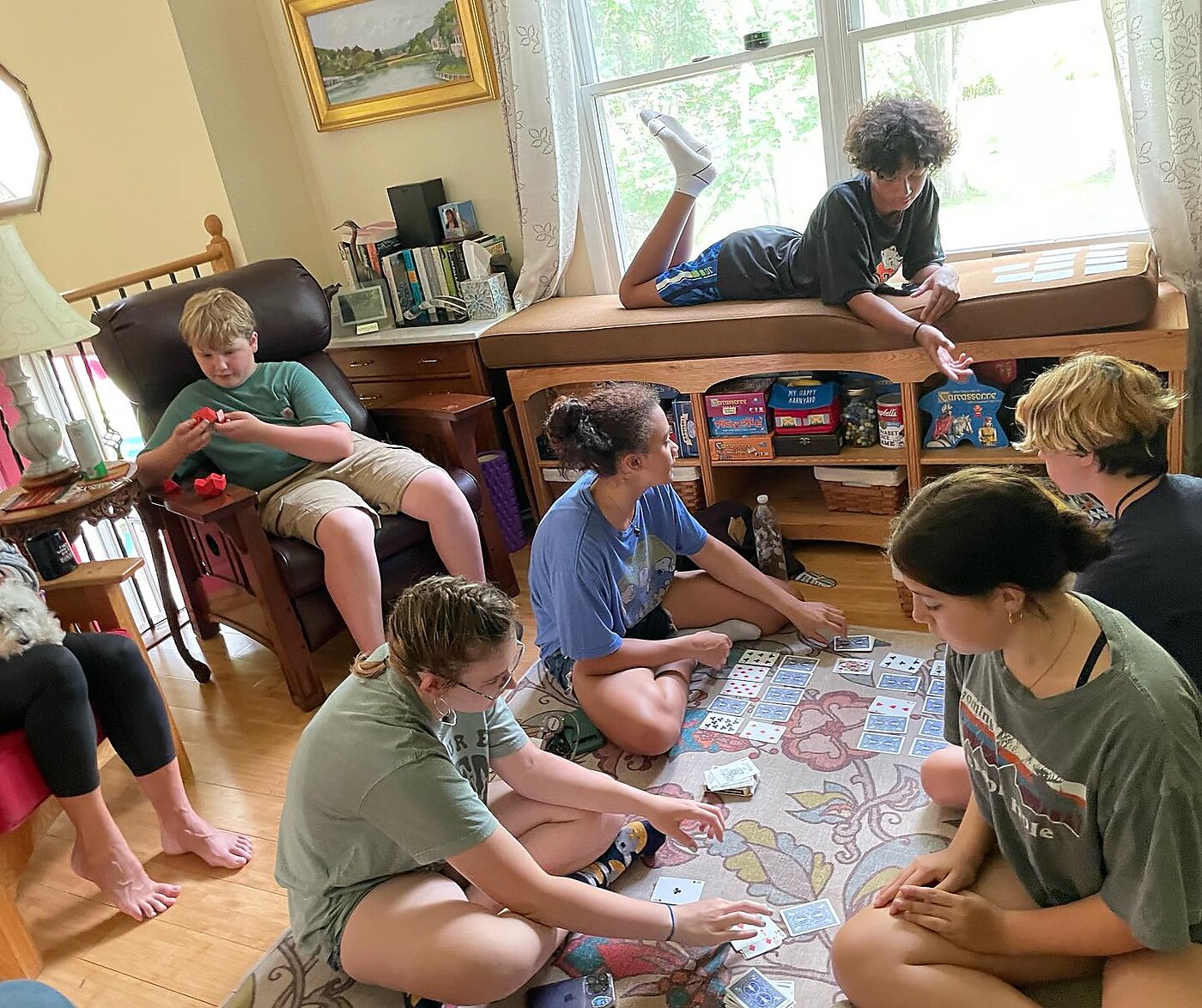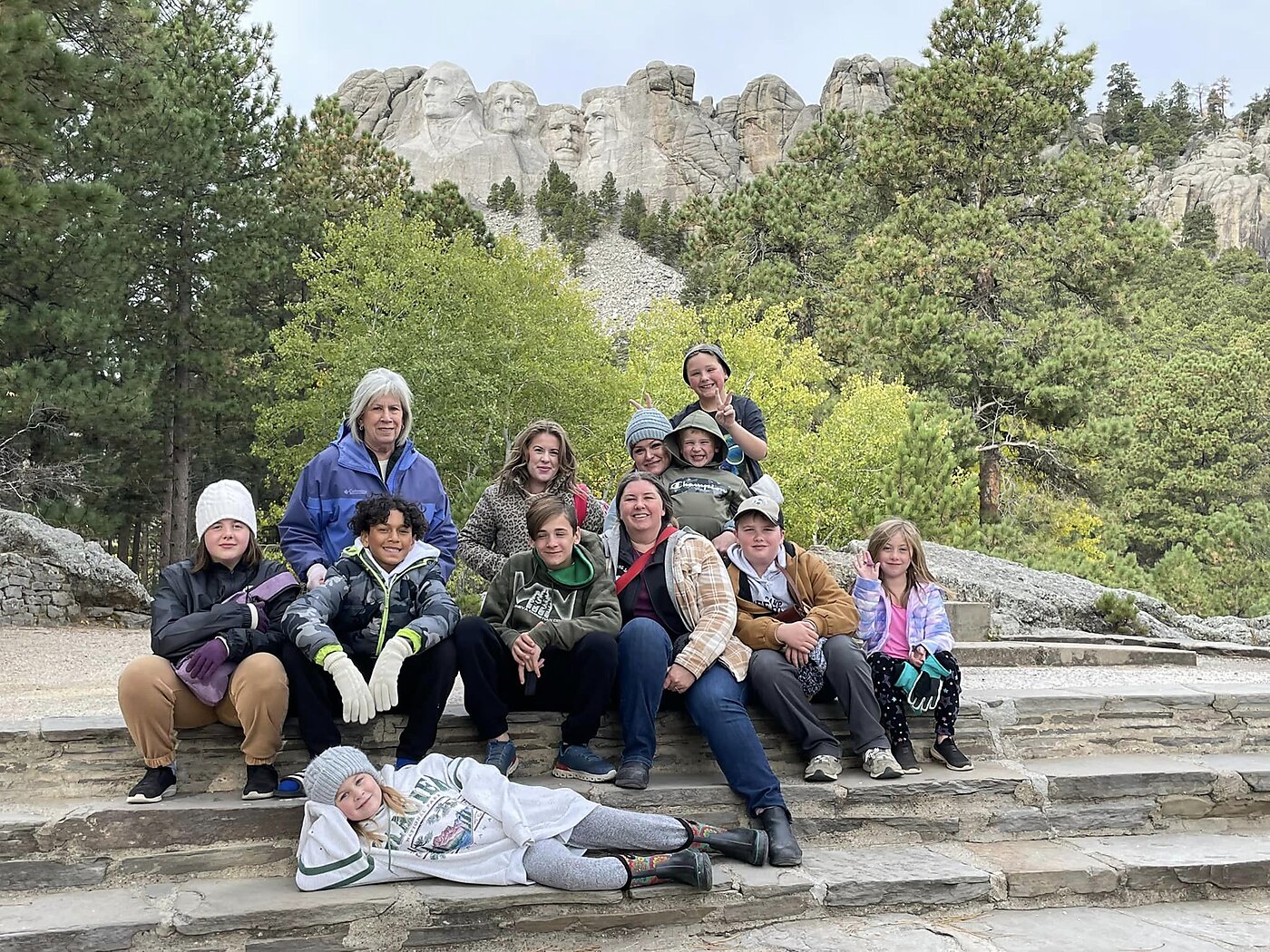Media
Miss Amy and Awakening Spirit Homeschool Collaborative has been honored to be featured in a number of podcasts and articles. Our original vision and name may have shifted slightly (originally envisioned as a private school, and now has grown to embrace an entire community of like-minded families!), but the passion behind Miss Amy’s journey has stayed the course.
![]()
FEE
https://fee.org/articles/no-we-dont-need-federal-homeschooling-standards/
FRIDAY, JUNE 21, 2024
No, We Don’t Need Federal Homeschooling Standards
Why should we assume the government knows best when it comes to education?
Some of you may remember that four years ago this week I debated Harvard Law School Professor Elizabeth Bartholet who called for a “presumptive ban” on homeschooling. The online event was hosted by the Cato Institute and drew thousands of participants, including many homeschooling families who were incensed by Bartholet’s proposal.
Now, Scientific American is joining the crowd of busybodies eager to constrain a family’s right to raise and educate their children how they choose. “The federal government must develop basic standards for safety and quality of education in homeschooling across the country,” read a recent editorial in the magazine.
Beyond the obvious point that there is no constitutional role for the federal government in education, the proposal for top-down, national mandates on homeschoolers assumes that the government knows best when it comes to education. Yet, the vast majority of school founders I interview are former public school teachers who grew so disillusioned with the rigidity, standardization, and coercion of government-run schooling that they left to create their own schools and spaces.
Many families are also leaving government-run schools for similar reasons, seeking more joyful and enriching learning experiences for their children. “It’s a virtually untapped market,” said Amy Marotz of the growing demand for homeschooling, microschooling, and other innovative educational models. On Tuesday’s LiberatED podcast, she shared her entrepreneurial journey: from Minneapolis public charter school teacher, to homeschooling parent, to microschool founder who is now helping others to launch their own schools.
The Scientific American piece calls for “federal mandates for reporting and assessment to protect children,” such as background checks on all homeschooling parents and regular reporting requirements to prove that children are learning. Yet, many parents choose homeschooling because government-run schooling is not protecting their children, who may be bullied or abused by peers or school personnel. As for reporting requirements for homeschoolers to demonstrate learning? That’s a pretty brazen request given that in the federal government’s own backyard of Washington, DC, only about one-third of public school students are reading at or above grade level, and only 22 percent are performing at or above grade level in math. For DC high schoolers it’s even worse, with only 11 percent of them proficient in math.
Homeschooling families don’t need more regulations—and certainly not from the federal government, which should have no role in education policy. Perhaps those who think the government knows best on education should work on improving government-run schools rather than coming after the millions of homeschooling families choosing something different.
This article originally appeared in the LiberatED email newsletter.
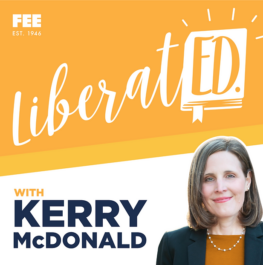
LiberatED Pocast with Kerry McDonald

reimaginED
https://www.forbes.com/sites/kerrymcdonald/2024/05/06/the-rise-of-education-entrepreneurs-in-minnesota/?sh=6cf5befb63ee
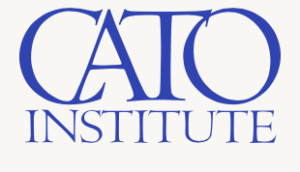
CATO Institute – Showcasing Education Entrepreneurs Panel (Washington DC)
https://www.cato.org/events/showcasing-education-entrepreneurs
January 30th, 2024
Miss Amy was honored to be invited out to the CATO Institute to appear on a panel of Education Entrepreneurs.

CATO at Liberty Blog
https://www.cato.org/blog/friday-feature-awakening-spirit-homeschool-collaborative
January 26, 2024
Friday Feature: Awakening Spirit Homeschool Collaborative
Amy Marotz loved being a teacher at a classical‐type charter school. But when she had children, she wanted to stay home with them and be their teacher first. She may not have expected it, but Amy was learning right alongside them. “My daughter went to Minnesota Waldorf School for her preschool education,” she recalls. “It was not only wonderful for her, but it was amazing for me to take a step back from the traditional world of teaching and see how a Waldorf school operates and see the importance of rhythm and simplicity and nurturing and calm and the environment.”
Amy says her experience with the Waldorf school was really formative for her as an educator. When she decided to homeschool her daughter, she incorporated the best of what she’d learned from different educational methods. She posted about her homeschooling journey on social media, and people became interested in what she was doing. A single mom reached out and said she’d love to homeschool her child but didn’t have the time or knowledge. Amy agreed to help. She started a homeschool cooperative with three students in the first year. Soon she had five students and then seven. “It was all just kind of organic,” she says.
With news of her homeschool cooperative spreading through word of mouth, Amy decided she needed to get serious about it as a business. “I took my teacher glasses off and I put some business owner glasses on, and that’s when I started working with Microschool Builders. I went through the Microschool Builders workshop and filled in all the gaps that I had about business and budget plans and making sure that my ideal families and ideal clients are set in stone. We operated for one more year out of the lower level of my family home at that point. After a year of working with Microschool Builders and getting crystal clear about everything that I wanted and my vision for the school, we were able to purchase a 15‐acre property in Stillwater, which is about 25 minutes away from our house. It’s wooded, with a beautiful landscape, a pond, and a sledding hill. We opened up the house at that point as a standalone school.”
Awakening Spirit Homeschool Collaborative offers a lot of flexibility for families. Kids can attend from two to five days a week with prorated tuition. Rather than a rigid start and end time, there’s a drop off period from 8:00 to 9:00 a.m. and a pickup period from 3:00 to 4:00 p.m. Amy chose this approach “because everybody’s schedule is different.”
In the beginning, Amy’s efforts were geared toward highly sensitive children who likely don’t fare well in a conventional classroom. She explains that the flickering lights, banging lockers, bells, and other visual and auditory stimuli in a typical school can overwhelm sensitive children and disrupt their learning. She purposely chose a home setting for Awakening Spirit to create a more comfortable environment for the students. Amy has found a lot of overlap between highly sensitive and gifted children, so she has shifted her focus a bit to encompass both.
Hearing what life is like for children at Awakening Spirit makes me want to move to Minnesota and enroll. “Our mornings start with chores,” says Amy. “We have goats and chickens and rabbits and bearded Dragons and turtles and cats and dogs and all kinds of things. That’s a part of our school. And that really gives the kids ownership in the whole operation. ‘It’s important to be here because the goats are waiting for me. I know I have to feed the goats today.’ A lot of our kids would exhibit reluctance to go to school before or even refusal. And we just don’t get that. The number one thing that parents are surprised about is that on the weekends the kids are like, ‘Wait, we’re not going to school today? Why?’ So that’s a really fun side effect of the program.”
After chores they have individualized reading and math using adaptive computer programs so everyone is getting the appropriate level of work. Then they have a group lesson based on topics that the students vote for. Right now they’re doing botany, but it cycles between science and history and literature. “We do Shakespeare every year because the Minneapolis Guthrie Theatre puts on a wonderful Shakespeare production, so the Guthrie gets to choose our Shakespeare unit,” Amy explains. “I have first graders reading Hamlet and then attending the performance engaged because they understand the story and what’s going on.”
As part of the focus on real world skills, the kids prepare lunch in the afternoon. Then they have passion project time. “They can take an Outschool class if there’s something that they’re really interested in. They can connect with somebody in our community. We have a lot of parents who are in the trades, so we have a dad who comes in and does a small engine repair class once a week. We have a mom doing sewing and crafting classes,” says Amy.
As they get more knowledgeable in their work and need less support, they can choose independent projects. “I’ve had kids do aluminum foundry in the backyard. Beekeeping, maple syrup, and things like that, too. A lot of our kids really like hands‐on learning and do really well with that.”
Depending on their age, the children spend one or two days a week outdoors with guides trained by the Forest School Teacher Institute. Amy is a huge proponent of getting all kids outside, which is why she sought a location with so much property, including a pond, woods, and lots of space to run around. They even have an outdoor classroom. They use the Boy Scout of America handbook to go through outdoor skills, knot tying, ropes, and naturalist‐type activities. The school even has an outdoor gear library so parents don’t have to buy boots or snow pants or anything. That way the kids can be warm and dry so they can enjoy the outdoor time even in the winter.
While this all sounds great, I haven’t even gotten to the part that makes me want to enroll in AWS myself. Three times a year, the school goes on break and students can join a roadschool trip. “We studied ancient Mayan and ancient Incan civilizations. Then the school had a spring break and families who wanted to could opt in and we went to Tulum [Mexico]. We actually walked in these amazing ancient places and were able to visit new place‐based education. We’ve gone to Atlanta when we were studying Martin Luther King Junior and Jim Henson for puppetry because the Center for Puppetry Arts is down there, which is amazing. We went to Hot Springs, Arkansas, after a geology unit and mined for crystals,” Amy says—with obvious enthusiasm.
If you’d like to learn more about Awakening Spirit and other hybrid and microschools, join us next week (Tues., Jan. 30, noon‑1:30 p.m. EST) for what’s sure to be a fascinating panel discussion. Amy will be there along with Dominque Burgess from Burbrella Learning Academy in North Carolina, Sharon Masinelli from St. John the Baptist Hybrid in Georgia, Jack Johnson Pannell from Trinity Arch Preparatory School for Boys in Arizona, and Eric Eisenbrey from Eyes and Brains STEM Center in West Virginia.
If you’re in the DC area, you can come to the Cato Institute and hear their stories in person. Or join us online from anywhere. And, of course, I’ll be profiling the other schools in future Friday Feature posts.

Episode 21 – The Future of Education: School Choice Week with Amy Marotz, microschool founder
January 23, 2024
Education Policy Expert Catrin Wigfall and John Hinderaker sit down with Amy Marotz, Director of Awakening Spirit Homeschool Collaborative in Stillwater, MN to discuss the future of education and school choice in Minnesota.

reimaginED
Most colleges of education stick to traditional teacher training despite pandemic-spurred innovation
“Most Colleges of Education Stick to Traditional Teacher Training Despite Pandemic-Supurred Innovation”, by Lisa Buie
Editor’s note: This article is the third in a series that explores how today’s teachers are being prepared – or not – for the classroom now that education choice has become normalized. You can read the first two articles here and here.
When Amy Marotz wanted to start a private homeschool collaborative for children with sensory issues, she didn’t rely on a traditional college of education for training, even though she had a master’s degree from one.
Instead, the former English teacher turned to Microschool Builders, a startup based in Pennsylvania. The firm, founded in 2019 by veteran educator and administrator Mara Linaberger, offers an array of services to prepare those seeking to become school founders. Most of the clients are teachers who want to trade their jobs in traditional classrooms for more fulfilling work in education.
Marotz, who leads Awakening Spirt School in the Minnesota Twin Cities area, is not alone in her desire for better opportunities. A 2022 survey commissioned by the National Education Association revealed that 55% of educators who responded said they were more likely to leave or retire sooner than planned. Reasons cited were burnout, general stress from the pandemic, student absences, and unfilled job openings leading to heavier workloads.
A recent special report from Step Up For Students, which hosts this blog, and EdChoice, highlighted 10 Florida educators who left the traditional classroom to start alternative education models. Top reasons included frustration with public schools, a desire to create options that better served their own children, a desire to create options that better serve teachers.
As more state legislatures approve education choice scholarships that can fuel growth in this segment, traditional four-year universities have yet to develop training options for teachers who see the benefit of bypassing traditional schools in favor of establishing alterative models.
Though some have embraced innovation, it has been mainly within the framework of traditional school systems. Most notable among these are Arizona State University’s Next Education Workforce initiative, which seeks to recruit and retain traditional school teachers by redesigning the workplace.
In Tennessee, Austin Peay State University created a three-year program in partnership with school districts and community colleges to attract and retain non-traditional students to the profession. The program, which was adopted statewide, became the first federal apprenticeship model of its kind and a model for the nation.
Still, when it comes to equipping these “eduprenuers,” resources are limited to companies that cater to established teachers who are burned out on traditional schools and seeking the opportunities to reconnect them with the love for teaching that drew them to education in the first place.
“Any attention to education innovation or alternative learning models that exist outside of traditional schooling are typically marginalized in these programs, if they are addressed at all,” said Kerry McDonald, a senior education fellow at the Foundation for Economic Education and author of the 2019 book “Unschooled: Raising Curious, Well-Educated Children Outside the Conventional Classroom.”
“This has long been true, but is perhaps more apparent today as microschools, homeschooling, learning pods, and similar models become increasingly popular,” she said.
Why have traditional colleges of education ignored this group in favor of the public school system? No one knows for sure, but experts offered some ideas.
First, the old way is simpler and scalable. It’s easy to plug in, and most education professors were trained in the traditional school model.
“They’re not entrepreneurs for the most part. It’s just not part of their DNA,” said Eric Wearne, an associate professor in the Education Economics Center at Kennesaw State University in Georgia and the director of the university’s National Hybrid Schools Project. The initiative seeks to document and analyze the variety of independent actors who are creating new forms of K-12 schooling outside of the conventional education system.
Wearne called most programs “thinly veiled arms of the HR department of the school district,” which they depend on to provide internships for their majors. States also have certification rules for teachers and working with public school districts allow for easier compliance.
“They’ve got to place a ton of students every semester,” Wearne said. “They have incentives to work with the school system.”
Also, the variety and complexity of all the different non-traditional methods make training a challenge. If colleges wanted to offer such training, it would be best to let majors choose to specialize in a certain model and follow a track rather than create new programs that address all non-traditional forms together as all are unique.
For example, requiring training in classical education, which emphasizes memorization, would be a poor fit for someone who considers such memorization pointless, he explained. A school also could add certifications in certain specialties or offer courses in business entrepreneurship for those who want them.
He said the private companies may be best equipped to train those who feel called to leave the beaten path because “most of those (graduates) are going to working for public school systems or private schools that look functionally similar.”
Another challenge to traditional universities is that as states continue to approve education choice policies that allow innovation to increase and flourish, the role of the teacher is also quickly changing. The idea of who counts as a teacher has also been expanded, with some companies that specialize in self-directed learning using guides instead of certified educators.
In a recent report on the transformative effects of the pandemic on learning, the Center on Reinventing Public Education recommends that the traditional schools themselves should be the ones to change the way they have done education for decades to capitalize on the innovation that sprang up during the pandemic and incorporate a more bottom-up approach.
It recommends new models in which teams of teachers take on different responsibilities based on their strengths and interests rather than have one teacher in charge of 20 to 30 students all day. Such innovations might keep teachers in the profession and provide better learning opportunities for all students regardless of where they get their education, said Travis Pillow, innovation fellow and senior writer at the center.
“We have to start treating teachers as knowledge workers the same way we do doctors and lawyers,” he said.
Wearne said that should extend to teachers’ colleges. If they don’t find ways to adapt as demand for non-traditional options increase among students and teachers, enrollments could decline as startups fill the void.
“If you have a natural decline in enrollment and huge market demand, then choosing not to meet that need does bode well for long-term prospects,” he said.

Awakening Spirit Homeschool Collaborative Receives 2022 Best of Stillwater Award
Press Release
FOR IMMEDIATE RELEASE
Awakening Spirit Homeschool Collaborative Receives 2022 Best of Stillwater Award
Stillwater Award Program Honors the Achievement
STILLWATER October 12, 2022 — Awakening Spirit Homeschool Collaborative has been selected for the 2022 Best of Stillwater Award in the Education Center category by the Stillwater Award Program.
Each year, the Stillwater Award Program identifies companies that we believe have achieved exceptional marketing success in their local community and business category. These are local companies that enhance the positive image of small business through service to their customers and our community. These exceptional companies help make the Stillwater area a great place to live, work and play.
Various sources of information were gathered and analyzed to choose the winners in each category. The 2022 Stillwater Award Program focuses on quality, not quantity. Winners are determined based on the information gathered both internally by the Stillwater Award Program and data provided by third parties.
About Stillwater Award Program
The Stillwater Award Program is an annual awards program honoring the achievements and accomplishments of local businesses throughout the Stillwater area. Recognition is given to those companies that have shown the ability to use their best practices and implemented programs to generate competitive advantages and long-term value.
The Stillwater Award Program was established to recognize the best of local businesses in our community. Our organization works exclusively with local business owners, trade groups, professional associations and other business advertising and marketing groups. Our mission is to recognize the small business community’s contributions to the U.S. economy.
SOURCE: Stillwater Award Program
CONTACT:
Stillwater Award Program
Email: PublicRelations@citiesaccolade.com
URL: http://www.citiesaccolade.com

“Former Public School Teacher Offers Advice for Starting a Microschool”, by Lisa Buie
Former public school teacher offers advice for starting a microschool
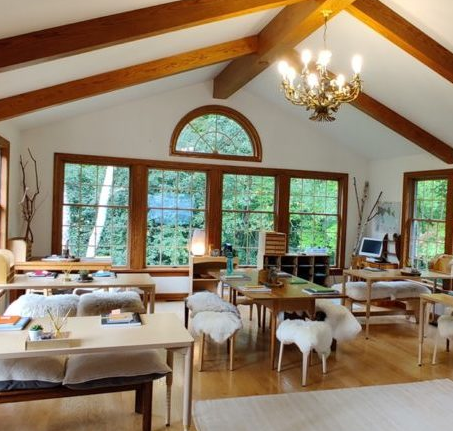
Amy Marotz’s decision to start a microschool began the way such decisions have begun for others: She became a parent.
The former educator, who taught English at a charter school for low-income students in the Minneapolis-St. Paul area, toured her zoned district elementary school when it was time to enroll her older child. Unlike her younger child’s preschool, a 40-minute drive from her home, the school was within easy walking distance.
That turned out to be the only advantage Marotz and her husband found.
“We both came back feeling a disconnect from the entire ideology of it,” said Marotz, who shared her story at the recent Liberation of Education conference. “We had embraced a screen-free lifestyle as young parents, and first graders were having 20 minutes on the computer for math.”
Marotz asked how much time students spent each day outdoors. The answer: about 10 minutes.
“Why should I let her spend 10 minutes outside when I know I can provide something that’s way more tailored to her individua needs?” thought Marotz, a certified teacher with a master’s degree in education.
That’s when she made up to her mind to become a homeschool mom. She started slowly, with three students: her daughter, her pre-school age son, and a neighbor’s child.
Like Marotz, her children were born sensitive to sensory stimuli, so she tailored her instruction to fit those needs. She held classes in the lower level of her home. Soon, three students grew to five, and five became seven.
Marotz knew she was no longer just an educator; she was running a business. For that, she needed help.
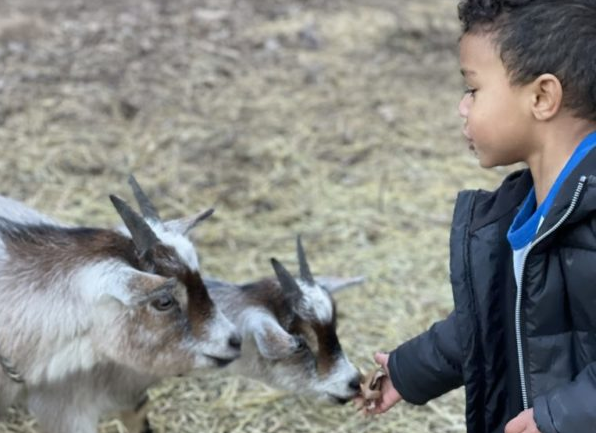
She connected with Mara Linaberger, founder of Microschoolbuilders.com. Linaberger, a former educator and school administrator who holds a doctorate in instructional technology, founded the company several years ago to help teachers and parents with the business of education.
Linaberger asked Marotz what she wanted most in a school and helped her develop a budget and a sustainable business model. The result was Awakening Spirits, a private micro-school that serves children who have sensory issues.
The school moved from Marotz’s home to a home on a 15-acre property in Stillwater, Minnesota, that looks like a one-room schoolhouse on the inside. Third through eighth graders learn together in the main classroom that boasts a picture window offering a view of the outdoors, where students spend about two hours per day.
(The school also has a preschool for students ages 3 to 6.)
“We wanted them to have access to animals and nature,” Marotz said.
Décor is simple so as not to overwhelm the students’ senses. In addition to learning core subjects such as reading, language arts, math, science and social studies, students care for animals. They also get to spend their afternoons pursuing “passion projects” that interest them.
One day a week, students venture out on local field trips, with occasional long-distance road trips throughout the year that they help plan as part of their learning.
Marotz, who is now a member of Linaberger’s team, has advice for anyone seeking to open a microschool. First on the list: Identify your market. In Marotz’s case, that was students who because of their sensory issues, didn’t fit in at a traditional school.
Other tips:
- Look at what’s already in your community and make sure you are pursuing a new niche.
- Visit your state’s Department of Education website and get familiar with the rules for homeschooling or opening a private school. Each state is different.
- Decide if your school will be for-profit or non-profit. Set up the necessary structure, such as a limited liability company, to make sure personal assets are protected from liability.
- Build a brand. Decide on a logo, colors, and lettering and use them consistently to help give your school credibility.
- Decide on marketing. Will you use organic, paid or a combination? What works best with your budget?
- Look for affordable space. Use your home or check out churches and community centers as a start.
- Make sure your school conforms with local land-use rules.
- Finally, set tuition no lower than day care center. Charge a rate that allows teachers to be paid fairly and high enough so that families value what you offer. Leave wiggle room to subsidize families that can’t afford to pay full price. Investigate state scholarship programs.

The Liberation of Education: You Can Build a Microschool!
April 29, 2022

Exalted- Hope, Health, Healing Podcast. Episode 7
Jen Bayer
Meet Amy Marotz, M.Ed dear friend and founder, director and lead educator-guide of our amazing microschool community- Awakening Spirit Homeschool Collaborative. This school has been EVERYTHING for our family long before the craziness of 2020.
It has been such a blessing to watch Amy’s dream of growing this community come to fruition and my family has been directly impacted. She is now looking for other communities who want to duplicate what she has created.
Have a listen in, whether you are looking for an alternative to regular schools or not, you will be inspired by her tenacious and loving spirit.
Awakening Spirit Homeschool Collaborative- www.awakeningspiritschool.com
Microschool Builders- www.microschoolbuilders.com
Podcast sponsored by www.exaltedhealth.com

Chasing Education Podcast. Episode 5
Karen Holman- Sarah Ruhnow- Julie Peterson
Amy Marotz joins us to share her personal journey and insights on Microschools. Amy is the founder and Lead Educator-Guide of a holistic, nature-based, student-led microschool called Awakening Spirit School based in MN. She walks us through her upbringing in Iowa and where her schooling went from struggling to thriving. She eventually found a calling for teaching her own children at home. This caught the attention of a few like minded parents and families that wanted to offer the same beautiful experience for their children, and her Microschool was born. Her lower level “one room schoolhouse” in her home, will be expanding this fall to a larger space complete with a farm. Amy believes students should be seen as individuals and goes out of her way to provide a calm environment for highly sensitive learners. She is an inspiration and will leave you wanting to start your own microschool…trust us! Enjoy!

Microschool Builders Show. Episode 2
Mara Linaberger
In our second episode, I spoke with Amy Marotz, owner of Awakening Spirit School in Stillwater, MN. Awakening Spirit is a holistic, nature-based, student-led microschool. They take kids tho currently hate school and help them to rediscover a love of learning within their first three months. Visit their website to learn more: www.awakeningspiritschool.com.

Reinventing School. Episode 14
Howard Blumenthal
On Thursday, August 6 at 4:00 pm US-EDT, we presented the fourteenth LIVE episode of the new LearningRevolution.com weekly interview series, REINVENTING SCHOOL. This week, REINVENTING SCHOOL focused on the spectacular rise in interest in pod schools–small groups of students studying with one or more teachers in an environment that is both similar to, and different from, traditional school. Our professional guests: Lian Chikako Chang, a “data storyteller,” started the Pandemic Pods group on Facebook in July; just weeks later, the group includes more than 35,000 members. Mara Linaberger, EdD is Founder & COO, Microschool Builder, and the author of The Micro-School Builder’s Handbook. Tasha C. Ring, M.Ed. is the Founder, Directress, and Principal Consultant for Meridian Learning.

Woodbury Magazine- August 2019
Catherine Guden
“Homeschooling is Our First Choice’: Woodbury Families Find Joy in Learning at Home”
An article featuring Amy Marotz and her children during the ‘proof of concept’ years of Awakening Spirit School.
https://woodburymag.com/homeschooling-our-first-choice-woodbury-families-find-joy-learning-home
‘Homeschooling is Our First Choice’: Woodbury Families Find Joy in Learning at Home

What are some things you picture when you think about homeschool? Like most American parents, Woodbury families who homeschool their children are well aware of the myths and stigmas around educating kids at home—including the stereotype of unsocialized and eccentric kids—but their own successes, academic and otherwise, are proof that a homeschool lifestyle is a great fit for families of all shapes and sizes. We talked with three Woodbury moms about why they made the decision to homeschool their children, and what they’ve learned along the way. And what we found is rooted in common sense: When parents work closely alongside their children, as a team, growth and development happen in a way that’s natural and often pretty darn fun.
While certainly not all homeschool families have a religious focus, the Woodbury parents we spoke with all have something in common: They want their children to be schooled in a primarily Christian environment while also receiving a top-notch education. These families incorporate religion into their school days in various ways, from attending daily mass to writing in gratitude journals to praying together. This spiritual aspect of their school life works alongside their regular lessons, which include solving math problems, reading books and performing science experiments.
Sarah Gibson, a Woodbury mom of five, began homeschooling her children after she realized that all of the private schools she was exploring were prohibitively expensive. So she decided to take matters into her own hands and build a curriculum herself to better align with her goals for her children.
“I have taught in the public school system as well, and believe that a Catholic school education aligns with our values, whereas the public school system often does not,” Gibson says.

Sarah Gibson is able to incorporate her family’s religious life into their homeschool day.
Amy Marotz, a mom of two, who has her master’s degree in education and was a founder at Minneapolis Academy and an art teacher in a summer program at St. Paul Academy, felt more than qualified to become a homeschool teacher. After touring a local public school, Marotz found herself disappointed with the amount of screen time encouraged there, and the extreme focus on performance, rather than allowing children freedom to explore. So she began teaching her daughter and son, and a couple of other local kids, in what she calls her “micro-school.”
“I took the steps necessary to form a nonpublic school with the state of Minnesota,” Marotz says.
Marotz’s micro-school is simply an extension of homeschooling her own children. She teaches a few other students every week alongside her own two children. Their parents pay a weekly tuition, which ends up being around $5 an hour, plus some extra expenses for field trips. This arrangement solves a conundrum many families face: when parents’ desire to homeschool clashes with their own work schedules, personalities, or their perceived “inability” to teach.
Kim Wilson, a mom currently homeschooling two of her children in high school and one in elementary school, mentions the unique experiences that come with homeschooling teenagers. In addition to academics, she is helping her kids find extracurricular activities and start college applications. She began homeschooling her daughter in 2006, and quickly decided to keep all of her children at home to learn.
“Today, homeschooling is our first choice. We enjoy spending time together learning and being able to weave our Christian faith and values in with their daily subjects,” Wilson says.
Wilson says, when working with elementary school students, there is more freedom and room to study interests, but as children enter into middle and high school, they generally need more structured learning so they can prepare for college and adult life.
 Kim Wilson’s kids learn by experiencing unique activities like archery.
Kim Wilson’s kids learn by experiencing unique activities like archery.
So what does a typical homeschool day look like for these families? For Gibson, it includes waking the kids up around 7 a.m. and attending a morning mass at their church. Then they have the mornings to play and do chores. In the afternoon, while the two youngest take naps, the three other children—a preschooler, kindergartner and second-grader—do their work in math, reading and spelling. Then they all do lessons together on science and history. Gibson uses a combination of self-paced workbooks, and field trips and activities designed to help them think more creatively and independently.
“With the core subjects (reading, writing and arithmetic), I take somewhat of a traditional approach to help them learn the facts. With other subjects, like science and history, I take a classical approach to develop their thinking skills and raise self-learners,” Gibson says.
For Marotz, four out of the five days during the week are what she calls more traditional school days, where they spend time in the formal classroom setting she has created in a downstairs space in their home. They begin with math lessons, which are completed with two different materials: a student-led math workbook, and a series called Life of Fred, which weaves lessons in with stories and exploratory questions. Lessons on history subjects, like the Vikings and the American Civil War, are done in a group. Their language arts lessons include reading literature (a favorite is Mark Twain’s Tom Sawyer) and completing creative writing projects. They have lunch together, all taking turns with cooking and setting the table, and then get time outside for recess. They often study Spanish through the MUZZY curriculum, and also Latin or STEM projects, which they finish around 1 p.m. In the afternoon, the children have time to pursue passion projects. Having regular, structured days are crucial, but Marotz and her students still manage to have plenty of fun outside of the house. “One day a week, we have an ‘adventure day’ where we visit local parks, museums, theaters, zoos, etc.,” Marotz says.

 Amy Marotz’s son and daughter have time each day for passion projects.
Amy Marotz’s son and daughter have time each day for passion projects.
Wilson used to schedule her days much like the other two families, but now that she has two children in high school, their days are looking quite different. One of her sons is involved in PSEO (postsecondary enrollment options) so he is already busy working on college courses. Her other son is a freshman, so he’s started what Wilson calls independent studying. He turns in assignments and papers and does most of his work alone.
So—what do the kids think? The students of these homeschool families express lots of positivity about the experience. They mention the freedom, adventure and independence that homeschooling affords them in their day-to-day lives.
When asked about their favorite parts about getting to learn at home, Gibson’s kids respond enthusiastically. “My 7-year-old daughter says her favorite part is reading the history books,” Gibson says. “Our history curriculum isn’t textbook-based, so the books are much more interesting than the reading I remember doing in history as a kid.”
Marotz’s kids enjoy some other special parts about being homeschooled. “My daughter, Alex, says her favorite part is getting to know the other students so well. They really are like family. She also loves writing and directing films during history class. My son, Justin, says he loves being able to write with a quill and being able to have a snack whenever he wants,” Marotz says.
“I have found that often homeschooled kids are better around younger kids with looking out for them and interacting with them, than their brick-and-mortar-schooled peers. They know how to interact with adults in various roles properly and politely,” Gibson says.
And these parents encourage their children to be involved in other activities outside of the house.
“Socializing is about interacting with other people. My kids have been involved at their church with Sunday school, confirmation, mission trips and volunteering. My kids have also been very involved in the Woodbury Athletic Association and at Woodbury High School in baseball, soccer, football, track, basketball, archery, cross country and gymnastics,” Wilson says.

Kim Wilson’s high school-aged son participates in football and other activities with traditionally schooled teens.
One perk all of the moms can agree on is the ability to tailor lessons and school days directly to their students, while also having the time to travel.
Since homeschool learning can (mostly) be done from anywhere and everywhere, all of the families take vacations and go on trips to learn by seeing, doing and experiencing, instead of simply reading facts from a book every day. They visit landmarks, museums and important historical places.
Gibson’s family traveled to Texas during a Minnesota winter; Marotz and her kids went river rafting in New Mexico after their unit on the hydrosphere; and Wilson’s family even had the chance to meet President Jimmy Carter.
For families who are interested in exploring the homeschool alternative education journey with their kids, Gibson, Wilson and Marotz say there are plenty of great resources locally.
One of the ways Wilson made connections and answered questions was by participating in the MACHE state homeschooling convention. There, parents and kids have the opportunity to meet other homeschooling families, compare curriculum options and gain advice from veteran homeschoolers. There are also numerous co-ops in the Woodbury, St. Paul and Oakdale areas. Woodbury High School is extremely supportive of homeschooling families and allows children to participate in activities like sports, theater and other clubs. Outside of public school activities, the moms also find it useful to join groups with other families. Gibson created what she calls a Tour of Parks, where homeschooling families get together in various Woodbury parks during the summer. Another resource Marotz recommends for finding activities with other homeschooling families is Homeschool Adventures, which allows teachers and students to attend local events and classes.
All three moms agree that with the increasing prevalence of social media, they can connect with other homeschooling families with ease







